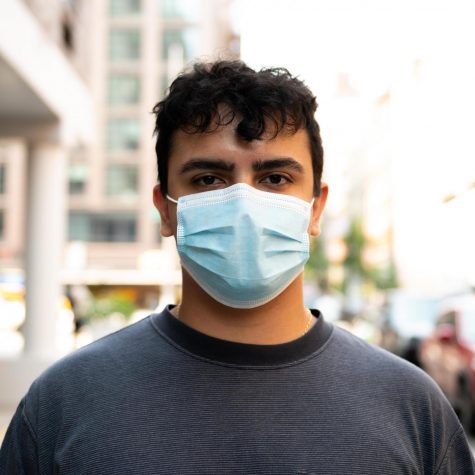The Soapbox: Belarus, Tigray, Guinea, Brazil
The Soapbox is a weekly column by WSN’s news desk, examining the major developments in world news and rounding up the stories we think are worth the read this week. Global consciousness for a global university.
The Soapbox is a weekly news column rounding up stories worth reading for a global university. (Staff Illustration by Susan Behrends Valenzuela)
September 8, 2021
In Belarus, icons of the opposition are jailed
A court in Minsk sentenced activist Maria Kolesnikova and lawyer Maksim Znak on Monday, Sept. 6, to 11 and 10 years in jail, respectively, for their involvement with an opposition group called the Coordination Council. Formed in 2020, the council aimed to facilitate a democratic transition during last year’s massive demonstrations against the authoritarian rule of President Alexander Lukashenko, who has been in power since 1994.
Kolesnikova and Znak were sentenced behind closed doors and no evidence against them has been made public. Their imprisonments are part of the government’s crackdown on protesters, organizers, journalists and politicians opposed to the Lukashenko regime.
“We demand the immediate release of Maria & Maksim, who aren’t guilty of anything,” fellow Coordination Council member and opposition leader Sviatlana Tsikhanouskaya wrote on Twitter. “It’s terror against Belarusians who dare to stand up to the regime. We won’t stop until everybody is free in Belarus.”
In war-stricken Tigray, new reports of atrocities and a worsening humanitarian crisis
In the northern Ethiopian city of Humera, ethnic Tigrayans are being murdered, tortured and imprisoned, according to separate reports published by CNN and The Telegraph on Sept. 5.
Humera is one of many areas of northern Ethiopia rocked by the ongoing war between Tigrayan nationalist forces and the federal military. Since the conflict began last November, both sides have been accused of war crimes, including the federal forces commanded by Prime Minister Abiy Ahmed of Ethiopia, the recipient of the 2019 Nobel Peace Prize.
Corroborating eyewitness reports from refugees, CNN’s investigation analyzed satellite imagery to identify nine prison camps in Humera, where Tigrayans are allegedly being detained, tortured and killed by federal troops.
“The [federal] forces take detainees every night and bring new ones,” an anonymous survivor, who says he was detained in one such prison alongside 250 other Tigrayans, told The Telegraph. “The ones they take never come back.”
The United Nations warned on Sept. 2 that since access to the Tigray region has been sealed off by armed forces during the war, shortages of food, medicine, fuel and cash are worsening by the day.
In Guinea, a coup d’état ends a decade of democracy
Heavy gunfire was heard ringing throughout Conakry, the capital of Guinea, on Sept. 5, as the military seized power in an apparent coup d’état.
Images emerged from the presidential palace hours after the fighting began, showing President Alpha Condé looking disheveled in civilian attire as he was surrounded and questioned by a group of heavily armed soldiers.
The first footage of the President of #Guinea Alpha Condé arrested by the military appeared on social networks. pic.twitter.com/heTf0KT3ZR
— Rutare (@UrRutare) September 5, 2021
The apparent coup d’état has put a definitive end to the country’s 11-year experiment with democracy after a period of backsliding under the now-deposed president, whose bid to remain in power led to bloody opposition protests in 2020.
A group of soldiers, draped in the Guinean flag and wearing army uniforms, appeared on state-owned television on Sunday morning to announce their takeover of the country. At the center was Colonel Mamady Doumbouya, the former leader of the army’s Special Forces Group who is now expected to act as Guinea’s military dictator. An elite soldier trained in Israel and France, Doumbouya is among 25 Guinean officials the European Union has threatened to sanction for human rights abuses, according to the BBC.
“We will no longer entrust politics to one man,” Doumbouya said on the broadcast. “We will entrust it to the people.”
Despite this rhetoric, the military junta dissolved parliament and nullified Guinea’s constitution immediately after seizing power. The Associated Press reported that members of Condé’s deposed government have been ordered to turn over their passports to the junta, while the country’s governors have been replaced with regional military commanders.
In Brazil, plans for far-right Independence Day rallies threaten to upend the republic
In a move being compared to the Jan. 6 insurrection at the U.S. Capitol, supporters of far-right Brazilian President Jair Bolsonaro took to the streets of São Paulo and Brasília, among other cities, on Sept. 7, Brazil’s Independence Day.
Bolsonaro has said he sees only three possible outcomes for himself in Brazil’s 2022 elections: being arrested, killed or declared winner.
Video footage uploaded to Twitter on Tuesday morning shows chaos in the Brazilian capital as protesters overwhelmed police and flooded into the streets. Metrópoles reported Tuesday morning that Bolsonaro flew over central Brasília in a military helicopter, waving to supporters on the ground below.
Bolsonaro’s approval ratings are at an all-time low. Polls show he could lose to left-wing opponent Luiz Inácio Lula da Silva in Brazil’s 2022 general elections. As Brazil’s judiciary continues to reject his allegations of electoral fraud, Bolsonaro has lashed out at the Supreme Court and encouraged his supporters to do the same.
“These one or two people [on the Supreme Court] have to learn their places, and the message from you, the Brazilian people, in the streets next Tuesday, the seventh, will be an ultimatum for these two people,” Bolsonaro said in a speech on Sept. 3, referring to the Supreme Court justices with whom he disagrees.
Bolsonaro’s political opponents are worried that his far-right base might violently attack the Supreme Court or other government buildings in Brasília. More than 100 left-wing politicians published an open letter on Sept. 6 warning that the rallies pose a threat to Brazil’s democratic institutions.
“Right now, President Jair Bolsonaro and his allies — including white supremacist groups, military police, and public officials at every level of government — are preparing a nation-wide march against the Supreme Court and Congress on 7 September, stoking fears of a coup in the world’s third largest democracy,” the group wrote.
Contact Suhail Gharaibeh at [email protected].

























































































































































